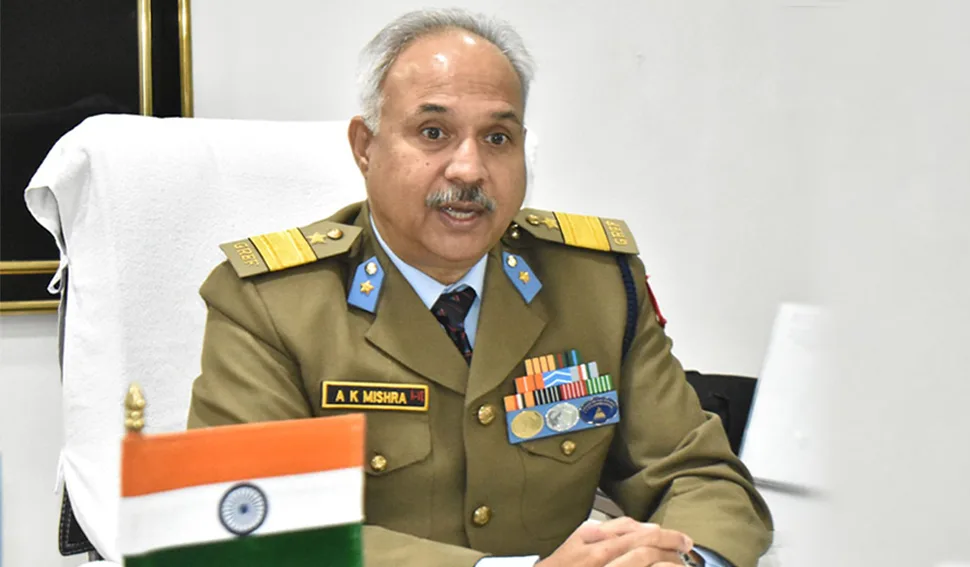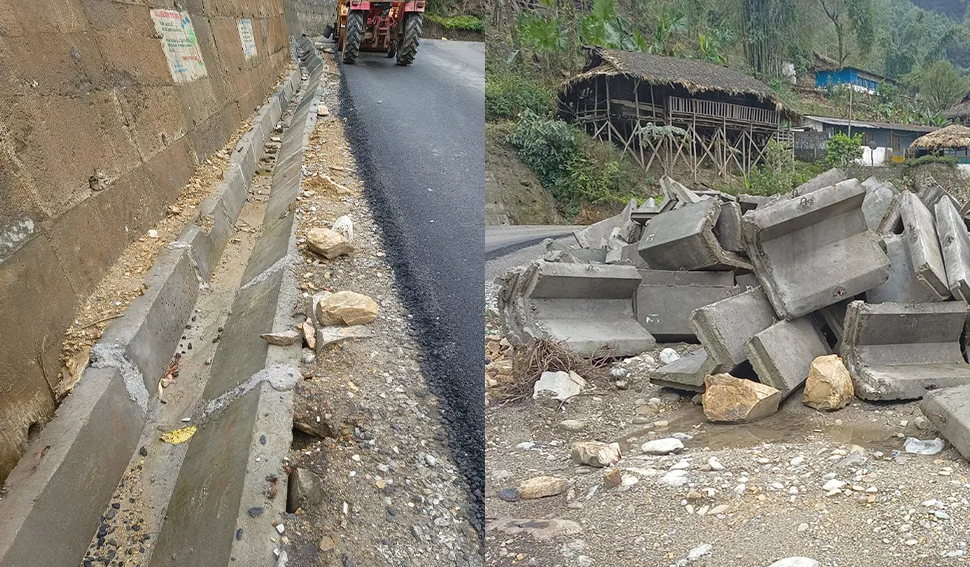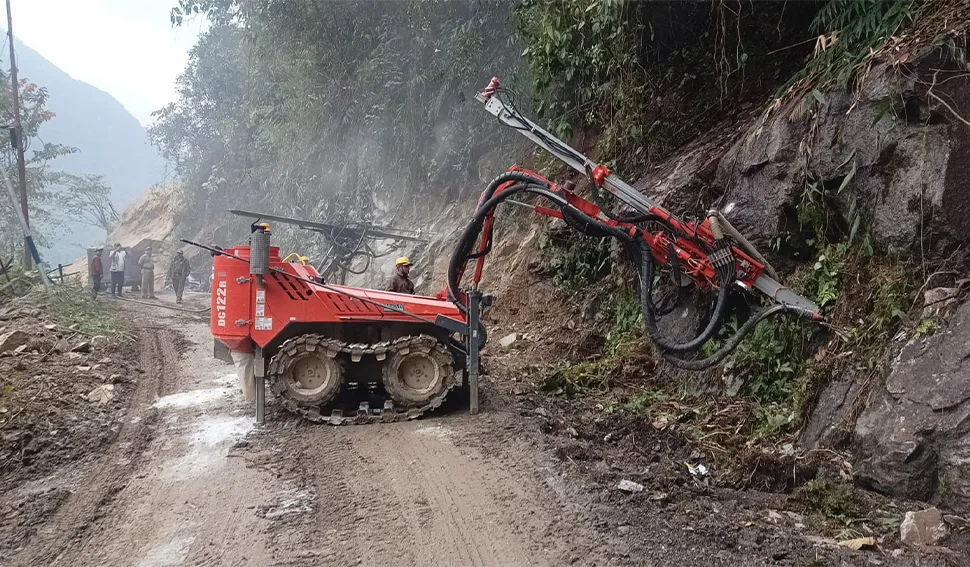Pre-cast materials, robotic drillers reduce environmental damage in BRO’s work
Infrastructure development, in most cases, is harmful to the natural environment. However, with the presence of watchdogs both private and government, construction agencies have to take due precautions to minimise environmental damage during their development activities. The Border Roads Organisation, which has been carrying out massive construction activities in the upper Himalayas, has responsibly adopted methods to cause less harm to the environment.
“We have made utmost efforts to minimise environmental damage by using pre-cast materials and robotic drillers among others during road construction,” said AK Mishra, Chief Engineer of BRO’s Project Brahmank which looks after frontier road construction along with National Highways Infrastructure Development Corporation (NHIDCL) in two major valleys – Siang and Shiyomi – in Arunachal Pradesh.
The use of pre-cast materials such as utility ducts and culverts can clear the road in hours after digging whereas earlier it took days and sometimes landslides led to repetitive digging and further delay.
High-tech machines such as robotic drillers for blasting are currently used to reduce vibration and noise to a great extent. Robotic drillers can penetrate holes several metres into the rock and mobile stone crushers have accelerated the speed of work as well.

“To minimise erosion, muck pits are built wherever possible and walls built around the pits to stabilise the muck,” Mishra said.

Several methods have been used for slope stabilisation such as building guard walls, iron netting cover on loose rocks and hydraseeding (spraying plant seeds along with water and manure) on the slopes, he added.
Under its compensatory afforestation mandate for the road projects, the BRO deposits adequate funds to the state government for which the latter had to identify land for afforestation.
“For paucity of land in the hilly state, neighbouring Assam too get such funds for compensatory afforestation,” the senior BRO official said.
Currently, the BRO in Arunachal Pradesh has accorded top priority to complete the 1748-km-long Frontier Highway with an estimated cost of Rs 27,000 crore. The proposed road with almost half of the stretch (800 km) being greenfield is scheduled for completion in 2027.
Besides the Frontier Highway, there will also be radials (smaller roads) connecting the last villages along the border with the two-lane highway, said the Project Brahmank chief.
Construction in some of the toughest terrains on a 200-km stretch of the strategic road is being undertaken by Project Brahmank, which was formed in 2011 to build roads and bridges to establish a communication network in the strategically important frontier state.
Expressing satisfaction over the pace of work considering the hostile terrain and weather, Bring Mishra asserted that the Frontier Highway will bring a sea change in terms of all modes of communication in Arunachal Pradesh in the next two to three years.
Meanwhile, the BRO has taken up a series of civic action programmes to benefit the local population, including health camps, and awareness programmes. etc.

Under the Vibrant Villages Programme (VVP) launched last year, basic amenities such as water supply, sanitation facilities, and schools among others are being provided at select frontier villages.
Comprehensive development of select villages is being carried out in 46 blocks in 19 districts of frontier states – Arunachal Pradesh, Himachal Pradesh, Sikkim and Uttarakhand – and UT of Ladakh under the Centrally-sponsored programme.



Leave a Reply